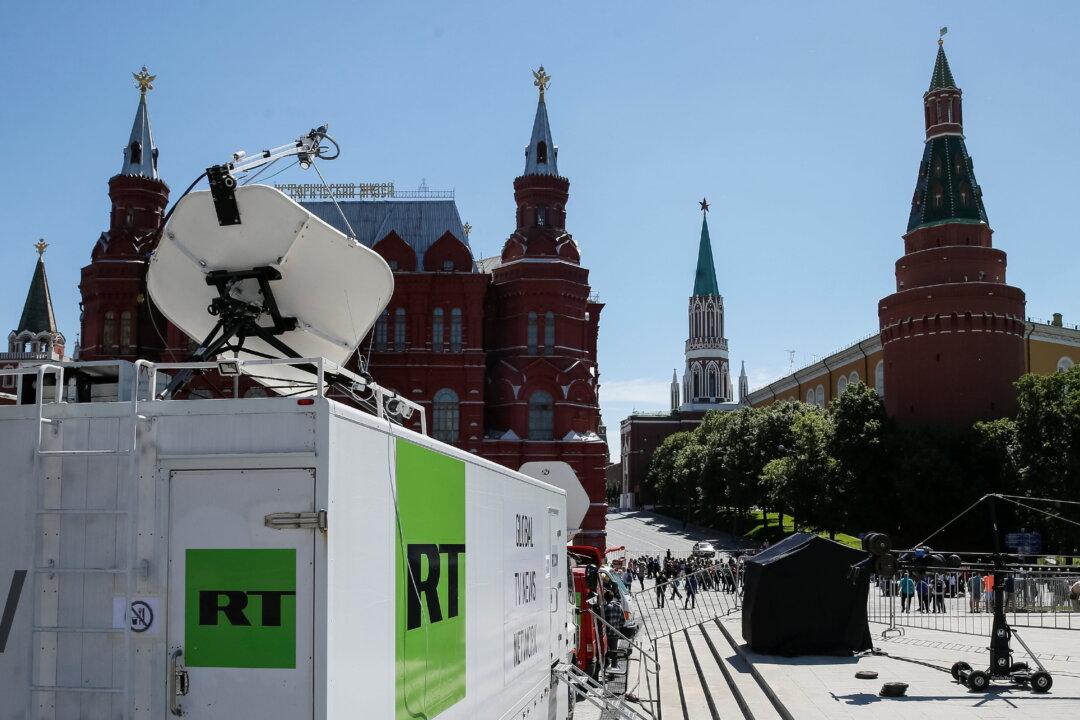Russian TV channel RT breached due impartiality rules on 29 occasions in four days following the invasion of Ukraine, the UK’s broadcasting regulator has found.
Ofcom investigated RT news bulletins and a documentary broadcast between Feb. 27 and March 2, and found the RT’s coverage “failed to preserve due impartiality in relation to the conflict in the Donbas region of Ukraine.”





